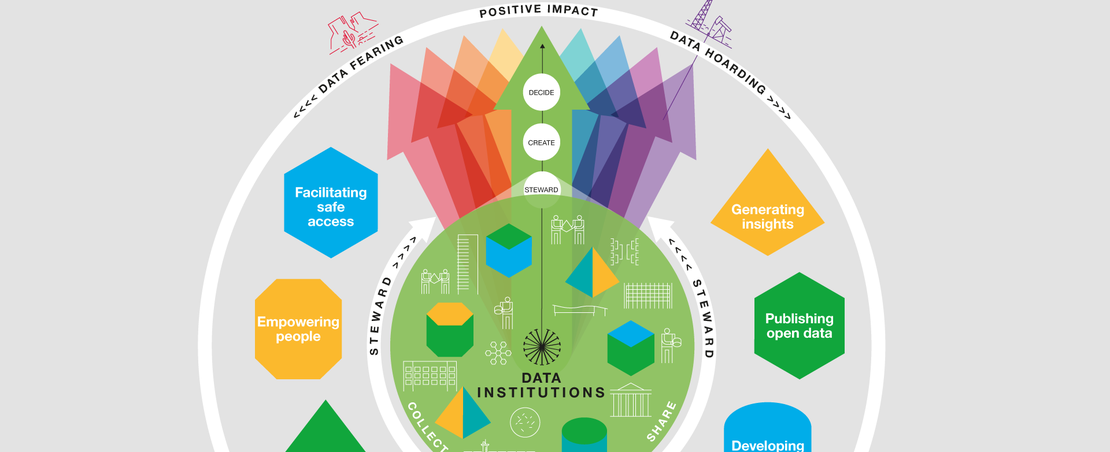
Three activities create impact from data
- stewarding data – collecting it, maintaining it and sharing it
- creating information from that data – in the form of products and services, analyses and insights, or stories and visualisations
- deciding what to do – informed by information from multiple sources along with experience and understanding
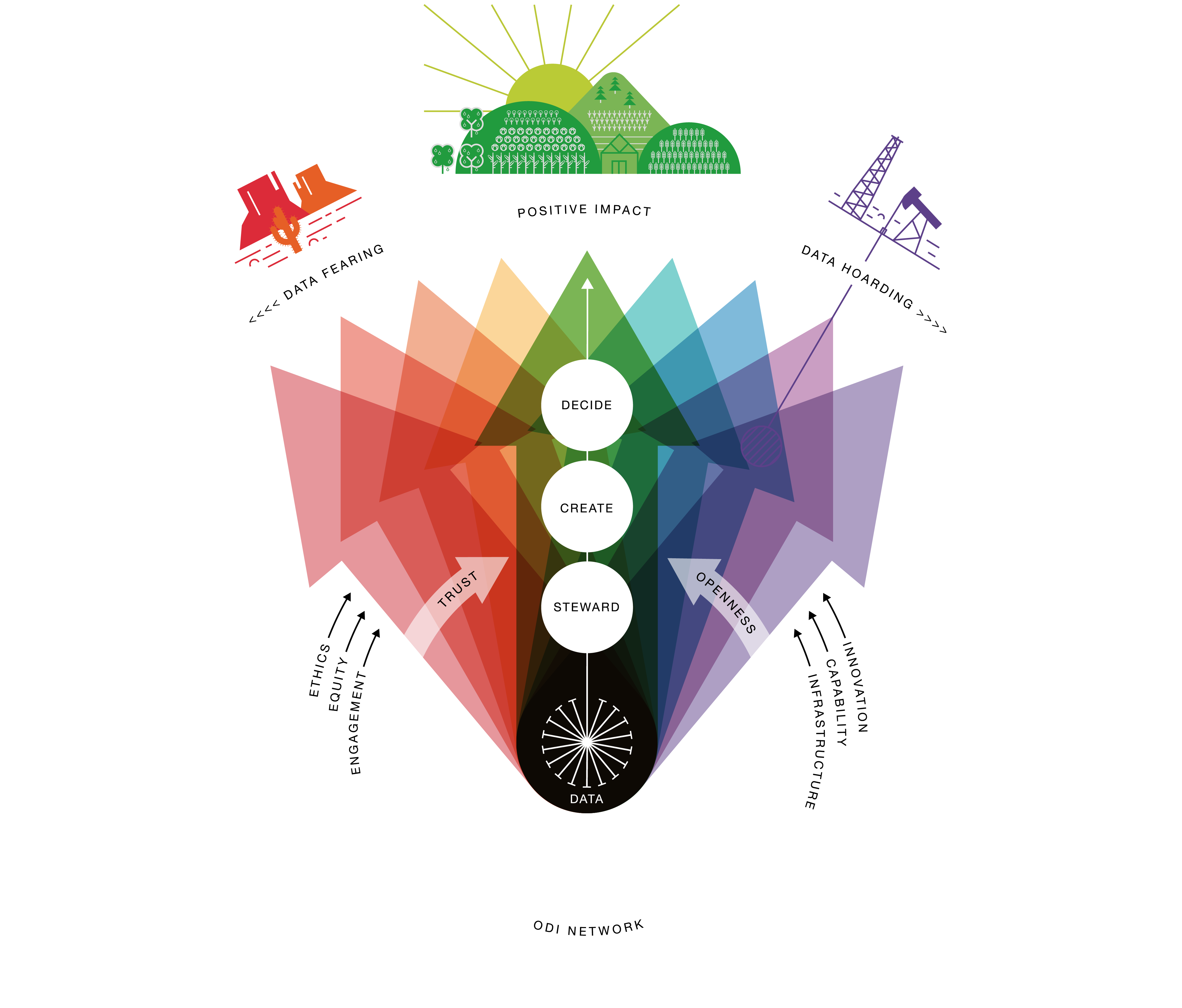
Each of these activities can be carried out by individuals, companies, communities and governments.
A government might steward transport data, which is used by a company to create a route-finding application used by individual commuters to decide how to travel to work.
A community might steward data about the location and operation of drains, which is displayed in a map created by an individual and used by local government to decide where to send a maintenance team.
A telecoms company might steward call logs, which are visualised within software created by another company and used by a humanitarian agency to decide where to target aid, based on population density.
How value is created from data
We want those who steward data and those who create information from this data to act in ways that lead to the best social and economic outcomes for everyone. In our theory of change, we call this goal the farmland.
What happens when we hoard data – the oil field
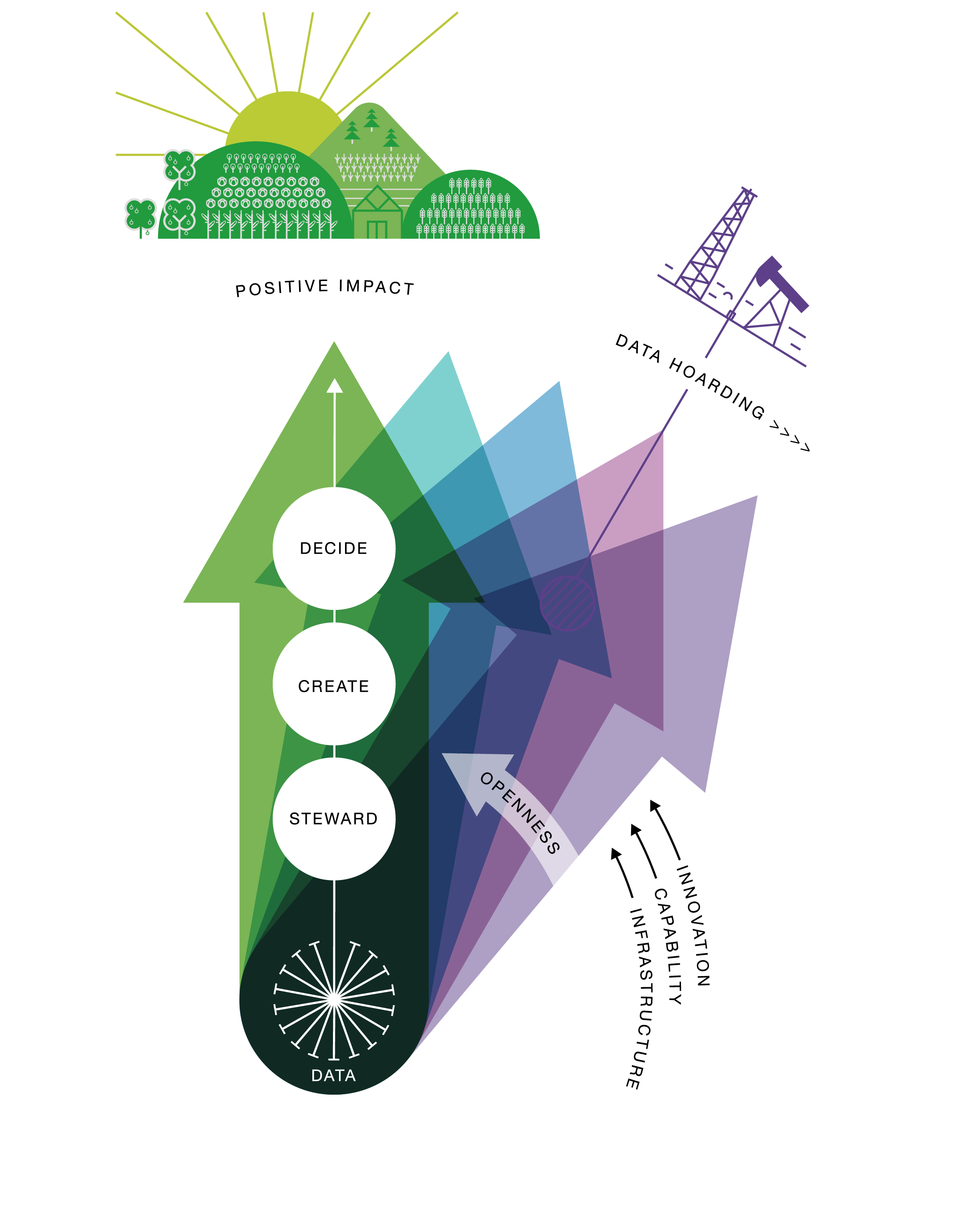
There is a danger that in some places, organisations hoard data.
They may use inappropriate business or funding models for data that limit the value that we, as a society, get from it. Here, value is concentrated in data monopolies, increasing inequality. We are more exposed to negative side-effects such as privacy and security risks.
We call this scenario the oil field because data is treated like oil. Its value is only realised by a few organisations and there are negative side-effects from its use that affect society as a whole. We think the benefits of data should be felt more widely in societies and economies. We also think that organisations that hoard data won’t be sustainable in the long term. We advocate for and support applying an open culture to the three pillars of how data is used within our economies: a data infrastructure that is as open as possible; data literacy and capability for all; and open innovation.
What happens when we fear data – the wasteland
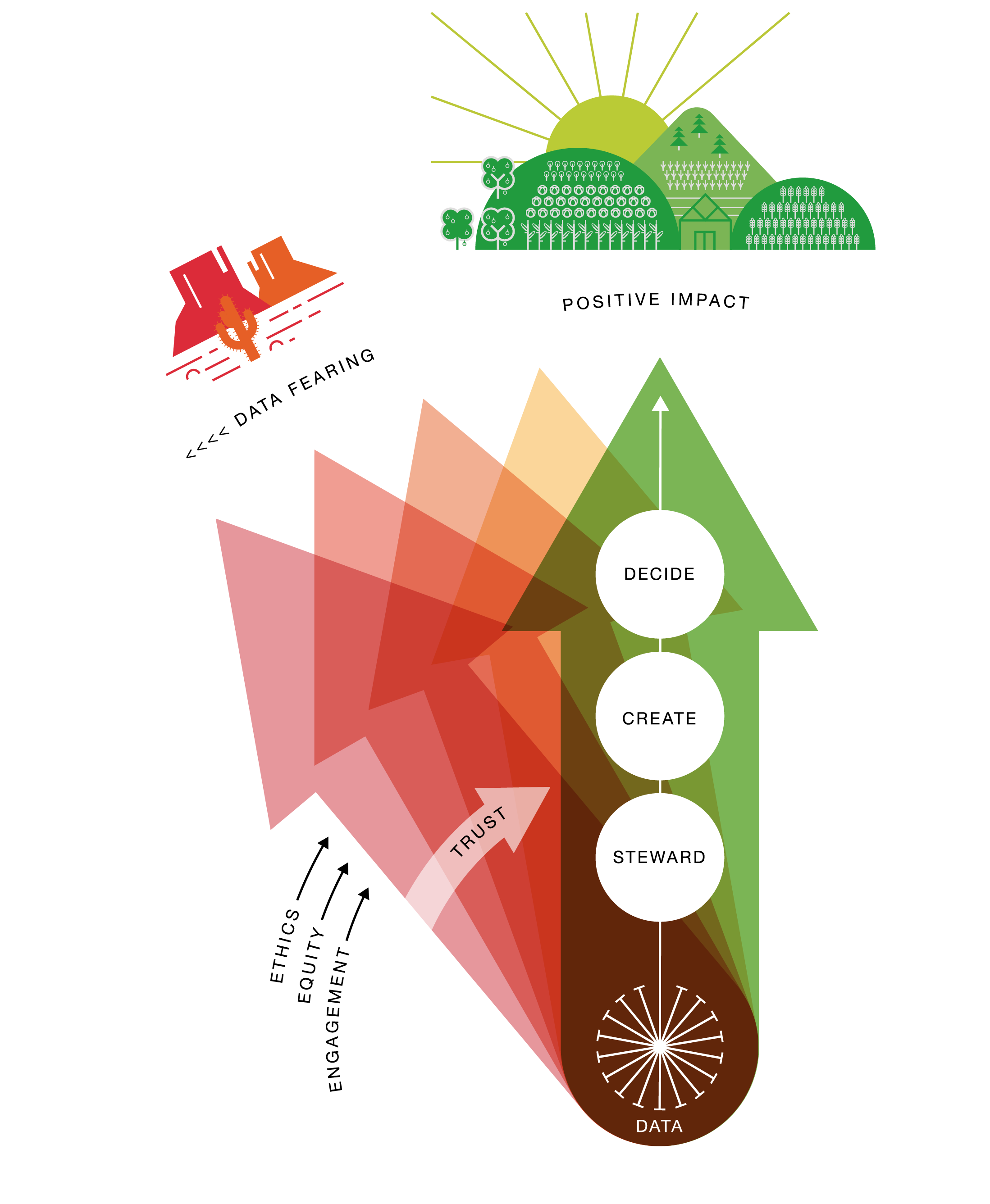
There is a danger that unaddressed fears arising from legitimate concerns – such as who has access to data and how it might be used – prevent us from realising its full benefits.
Data might not be collected or used to the extent it could be. Individuals withdrawing consent could lead to data that is biased and misleading.
We call this scenario the wasteland because we end up lacking the data that could support data uses to flourish. We think data is an incredibly useful commodity and that we can all benefit when it is used well. We advocate for and support putting in place practices that ensure the way data is collected and used is trustworthy and just.
These include:
- building in ethical considerations to data collection, management and use
- ensuring that there is equity around who accesses, uses and benefits from data
- engaging widely with people and organisations who are affected.
How we achieve scale
We are one of many organisations working towards a good balance between encouraging and restricting how data is collected and used.
At the ODI, we focus on changing the behaviour of companies and governments in their roles as stewards, creators and decision makers, emphasising activities early in the value chain. Companies and governments are the biggest holders and users of data, and influence other types of organisation. They have particular responsibilities and opportunities, and should lead by example.
The behaviour of those who steward data, create information from it, and decide what to do based on this knowledge is influenced by other kinds of organisations. To build a culture of openness and trust around data, we have to work with and through them.
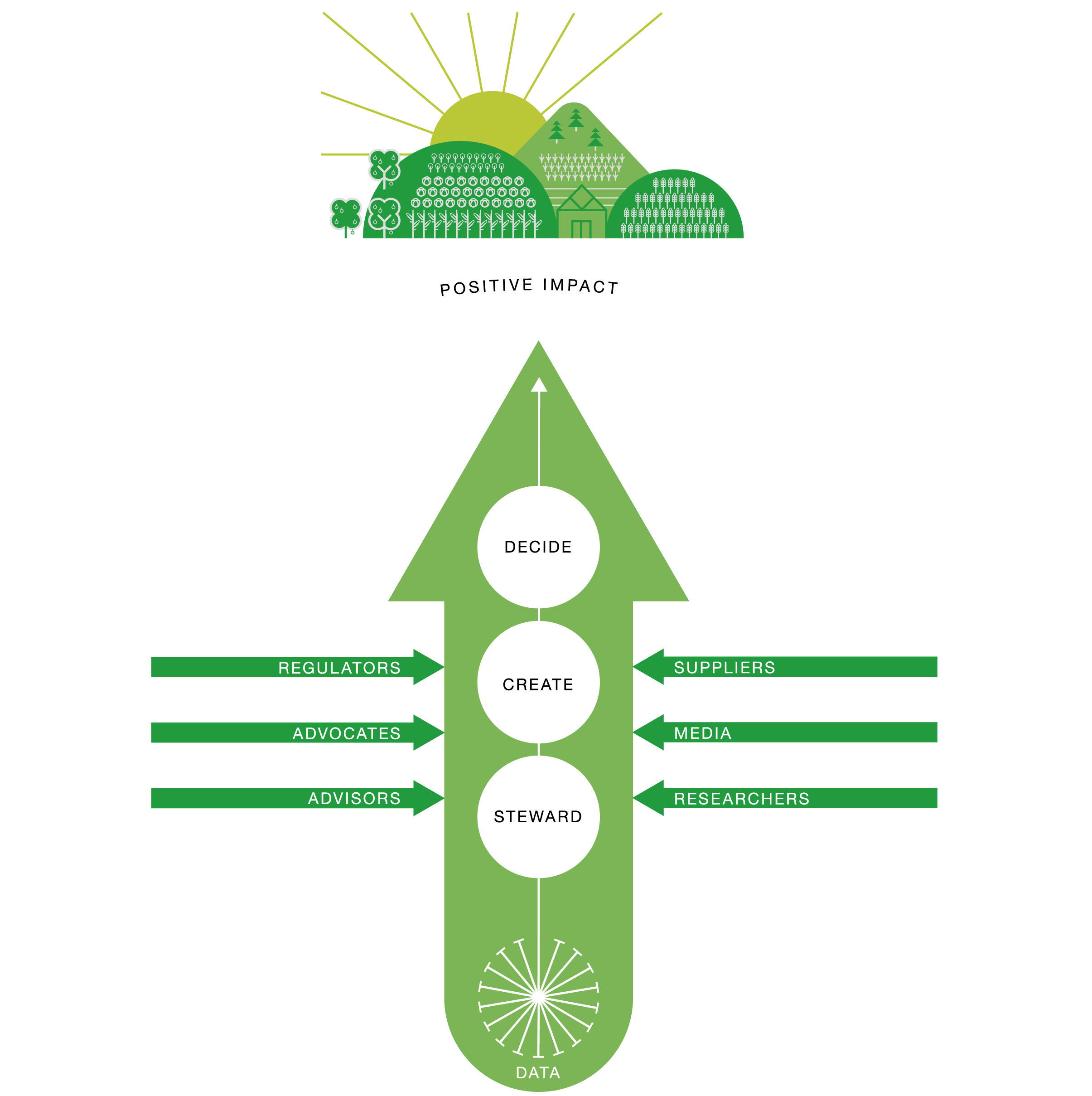
These include:
- regulators who create the policies and legislative frameworks within which others operate
- advocates such as thinktanks and pressure groups, who encourage organisations to behave in particular ways
- advisors such as big consultancies and training organisations, who advise businesses and governments about good practice in their strategy and operations
- suppliers of tools and services that organisations use, which influences what practices they can easily support
- media, both mainstream and speciality, which influences how business and government leaders think
- researchers from academic institutions and elsewhere, who provide evidence and analysis that can help support, or refine, our arguments and approach.